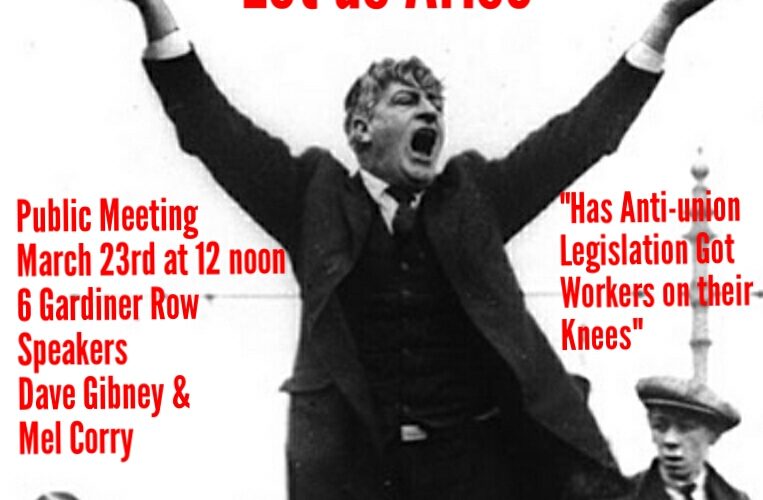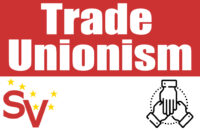The Trade Union Left Forum is holding a public meeting and discussion workshop on anti-union legislation and how it affects the Irish working class, north and south. The purpose of the forum is to encourage and initiate serious examination and debate on the major questions facing the labour movement today from a left and class viewpoint.
The meeting will be held in the head office of Connect (6 Gardiner Row, Dublin), staring at noon on Saturday 23 March.
Two speakers will address the meeting. Dave Gibney of Mandate will discuss anti-union legislation in the South, and Mel Corry of Trademark, Belfast, will deal with legislation in the North. The meeting will then be opened up for a discussion in which activists will share their experiences on the legislation, on how to get around it from day to day, and how we can bring pressure on legislators to have it abolished.
Anti-union legislation in both jurisdictions can be and should be overturned. Dáil Éireann has the power to do so, as has the Executive in Stormont.
This is a very important meeting, as workers’ share of income is continuing to fall. This decline began at the end of the 1970s and went into free fall under “social partnership” and the neo-liberal agenda of the 1980s.
It’s no coincidence that at the same time union density began to decline, to the point where a little over 30 per cent of workers are now union members. If workers are to regain lost ground, anti-union legislation must be abolished. Workers must have control over what they and their trade unions decide and over when, where and what action to take.
It is essential for workers to understand anti-union legislation and to learn ways of operating within its limitations until such time as it is abolished.
This meeting is an important initiative on the part of the TULF. It will be followed in a number of weeks by a meeting dealing with anti-union legislation from the EU and how it disempowers workers in Ireland.
Workers’ rights, pay and conditions are under continuous attack in the gig economy, with bogus self-employment, short-term temporary contracts and precarious work now the norm. It’s time the trade union movement and organised labour went on the offensive to win back lost ground and fight new battles.
All activists and union members are encouraged to attend.






